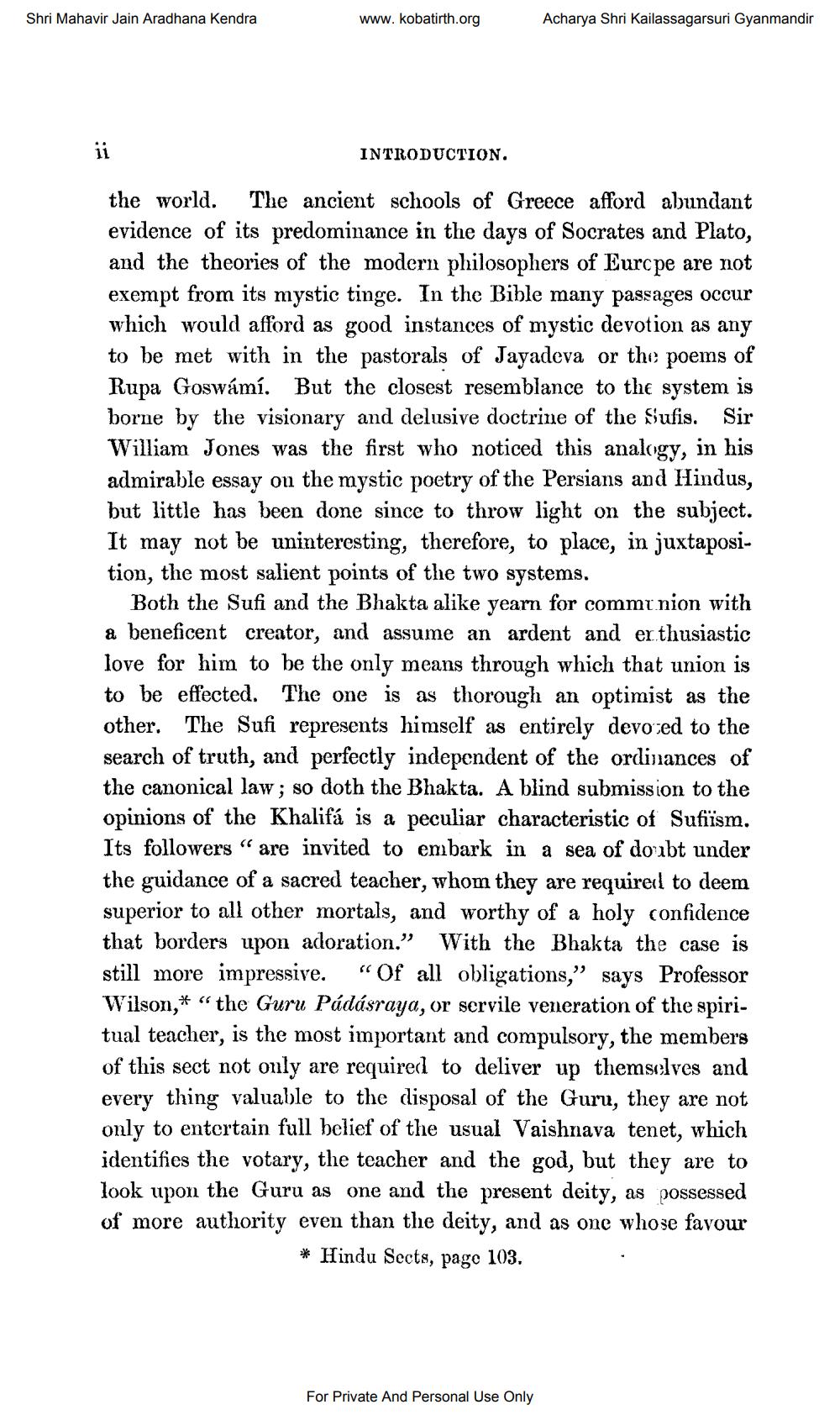Book Title: Chaitanya Chandrodaya Author(s): Kavi Karnpur, Vishvanath Shastri, Rajendralal Mittra Publisher: Bapist Mission Press View full book textPage 7
________________ Shri Mahavir Jain Aradhana Kendra ii www.kobatirth.org INTRODUCTION. Acharya Shri Kailassagarsuri Gyanmandir the world. The ancient schools of Greece afford abundant evidence of its predominance in the days of Socrates and Plato, and the theories of the modern philosophers of Europe are not exempt from its mystic tinge. In the Bible many passages occur which would afford as good instances of mystic devotion as any to be met with in the pastorals of Jayadeva or the poems of Rupa Goswámí. But the closest resemblance to the system is borne by the visionary and delusive doctrine of the Sufis. Sir William Jones was the first who noticed this analogy, in his admirable essay on the mystic poetry of the Persians and Hindus, but little has been done since to throw light on the subject. It may not be uninteresting, therefore, to place, in juxtaposition, the most salient points of the two systems. Both the Sufi and the Bhakta alike yearn for communion with a beneficent creator, and assume an ardent and enthusiastic love for him to be the only means through which that union is to be effected. The one is as thorough an optimist as the other. The Sufi represents himself as entirely devoted to the search of truth, and perfectly independent of the ordinances of the canonical law; so doth the Bhakta. A blind submission to the opinions of the Khalifá is a peculiar characteristic of Sufiism. Its followers" are invited to embark in a sea of doubt under the guidance of a sacred teacher, whom they are required to deem superior to all other mortals, and worthy of a holy confidence that borders upon adoration." With the Bhakta the case is still more impressive. "Of all obligations," says Professor Wilson,* "the Guru Pádásraya, or servile veneration of the spiritual teacher, is the most important and compulsory, the members of this sect not only are required to deliver up themselves and every thing valuable to the disposal of the Guru, they are not only to entertain full belief of the usual Vaishnava tenet, which identifies the votary, the teacher and the god, but they are to look upon the Guru as one and the present deity, as possessed of more authority even than the deity, and as one whose favour *Hindu Sects, page 103. For Private And Personal Use OnlyPage Navigation
1 ... 5 6 7 8 9 10 11 12 13 14 15 16 17 18 19 20 21 22 23 24 25 26 27 28 29 30 31 32 33 34 35 36 37 38 39 40 41 42 43 44 45 46 47 48 49 50 51 52 53 54 55 56 57 58 59 60 61 62 63 64 65 66 67 68 69 70 71 72 ... 294
